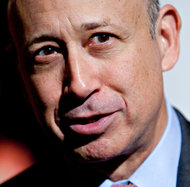The comments by the administration’s chief technology officials, posted on a White House blog Saturday, came as growing opposition to the legislation had already led sponsors of the bills to reconsider a measure that would force Internet service providers to block access to Web sites that offer or link to copyrighted material.
“Let us be clear,” the White House statement said, “online piracy is a real problem that harms the American economy, threatens jobs for significant numbers of middle class workers and hurts some of our nation’s most creative and innovative companies and entrepreneurs.”
However, it added, “We will not support legislation that reduces freedom of expression, increases cybersecurity risk or undermines the dynamic, innovative global Internet.”
The bills currently under consideration in Congress were designed to combat the theft of copyrighted materials by preventing American search engines like Google and Yahoo from directing users to sites that allow for the distribution of stolen materials. They would cut off payment processors like PayPal that handle transactions.
The bills would also allow private citizens and companies to sue to stop what they believed to be theft of protected content. Those and other provisions set off fierce opposition among Internet companies, technology investors and free speech advocates, who said the bills would stifle online innovation, violate the First Amendment and even compromise national security by undermining the integrity of the Internet’s naming system.
Though the Obama administration called for legislation this year that would give prosecutors and owners of intellectual property new abilities to deter overseas piracy, it also embraced the idea of “voluntary measures and best practices” to reduce piracy.
Whether Congress can produce a compromise is uncertain, particularly in the House of Representatives, where Republicans have fought bitterly over the antipiracy legislation and party leaders, who control the chamber, are loath to offer further opportunities for intraparty battles.
The Motion Picture Association of America, the Hollywood lobbying group that has been most visible in its support for the current bills, said in a statement on Saturday that it welcomed the administration’s call for antipiracy legislation. But, the trade group added, “meaningful legislation must include measured and reasonable remedies that include ad brokers, payment processors and search engines.”
Hollywood and the music industry have broad political support for their efforts, and the Chamber of Commerce and labor organizations have pushed for the legislation. But they often find themselves facing off against the libertarian views of leaders in the technology industry.
Opponents of the House bill, the Stop Online Piracy Act, and the Senate bill, the Protect IP Act, have focused most of their attention on the proposed blocking by Internet service providers of Web sites that offer access to pirated material.
In December, a group of influential technology figures, including founders of Twitter, Google and YouTube, published an open letter to lawmakers saying that the legislation would enable Internet regulation and censorship on par with the government regulation in China and Iran.
That argument struck a chord with the Obama administration, which through the State Department and other channels has been pushing other countries to loosen restrictions on Internet access.
In its statement Saturday, the White House said any proposed legislation “must not tamper with the technical architecture of the Internet.” Parts of the bills that provide for filtering or blocking through the Domain Name System — the Internet’s address book — could drive users to unreliable routes through and around the blocked sites, the White House said. That would “pose a real risk to cybersecurity and yet leave contraband goods and services accessible online.”
The statement did not threaten a presidential veto, but it made plain what types of piracy enforcement measures the White House would not accept.
The statement was attributed to Victoria Espinel, the intellectual property enforcement coordinator at the Office of Management and Budget; Aneesh Chopra, the administration’s chief technology officer; and Howard Schmidt, a cybersecurity coordinator for the national security staff.
Jenna Wortham contributed reporting from New York.
Article source: http://www.nytimes.com/2012/01/15/us/white-house-says-it-opposes-parts-of-2-antipiracy-bills.html?partner=rss&emc=rss





